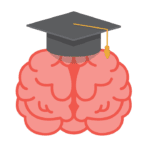Mental Arithmetic Online
Boost your brain with our online mental arithmetic games! Discover stimulating and fun calculation games to improve your mental agility, memory and math skills. Suitable for all ages and levels, start stimulating your mind now!
Mental arithmetic is a skill we use every day, often without even realizing it. It’s the ability to perform mathematical operations in our heads, without the aid of written material, a calculator or a computer. This ability enables us to solve a wide range of mathematical problems quickly and efficiently, and to make informed decisions in many everyday situations.
Let’s take a simple example of mental arithmetic: if you’re in the supermarket and want to buy three apples each costing €0.60, you’ll probably do a quick calculation in your head to work out how much you’re going to pay. You multiply €0.60 by three and deduce that the total cost will be €1.80. This process of quick multiplication and cost estimation is an example of mental arithmetic.
Mental arithmetic isn’t just useful for everyday shopping, it’s also invaluable in more complex situations, where speed and accuracy can be crucial, such as in professions linked to finance, engineering or even math teaching.
By developing our mental arithmetic skills, we can improve our efficiency in a wide range of areas and tasks, and equip ourselves with a powerful tool for navigating the world around us. Regular practice of mental arithmetic can improve our memory, concentration and ability to solve problems creatively and strategically.
Mental arithmetic occupies a central place in our lives. Not only is it a practical everyday tool, it also makes a significant contribution to our cognitive development.
Mental arithmetic helps us to cope with everyday situations involving numbers and quantities, whether estimating the duration of a journey, calculating a tip or making a purchase. This skill enables us to make quick, informed decisions without the need for written or electronic support, making our daily lives smoother and more efficient.
On a cognitive level, mental arithmetic stimulates several areas of the brain, promoting the development of working memory, concentration and logic. It also encourages critical thinking and analytical reasoning, skills that are indispensable in various aspects of life and in many professions.
A study of students showed that those who regularly practiced mental arithmetic showed significant improvements in problem-solving and decision-making. Not only were they able to process information more quickly, but they also demonstrated greater adaptability and confidence in their cognitive abilities.
In this context, mental arithmetic proves to be much more than just the ability to manipulate numbers in the mind; it’s a mechanism that fosters intellectual development and enriches our relationship with the world.
Teaching mental arithmetic in the education system is crucial, both for the intellectual development of the individual and for academic success. It is the cornerstone of mathematical learning and underpins many essential skills.
Teaching mental arithmetic at school fosters the development of various cognitive skills such as memory, concentration and speed of thought. This enables students to acquire a deeper understanding of mathematical concepts and strengthens their ability to solve problems independently and effectively.
Integrating mental arithmetic into school curricula has a significant positive impact on students’ academic results. Students who have mastered mental arithmetic tend to perform better in mathematics and other subjects that require sound logic and reasoning, such as science.
Teaching mental arithmetic from an early age prepares students to face future academic and professional challenges with confidence and success.
- Addition: The process of adding two or more numbers to obtain a sum. Example: 5 + 3 = 8
- Subtraction: The process of subtracting one number from another to obtain a difference. Example: 9 - 4 = 5
- Multiplication: The process of adding a number to itself a certain number of times. Example: 3 × 4 = 12
- Division: The process of dividing a number into equal parts. Example: 12 ÷ 3 = 4
- Mental arithmetic: Mental arithmetic calls on the mind's ability to solve mathematical problems without external help such as a calculator or paper and pencil. It stimulates mental agility and logical thinking.
- Automatic calculation: Automatic calculation relies on the use of tools and technologies, such as calculators or computers, to perform mathematical operations, enabling results to be obtained quickly and accurately.
